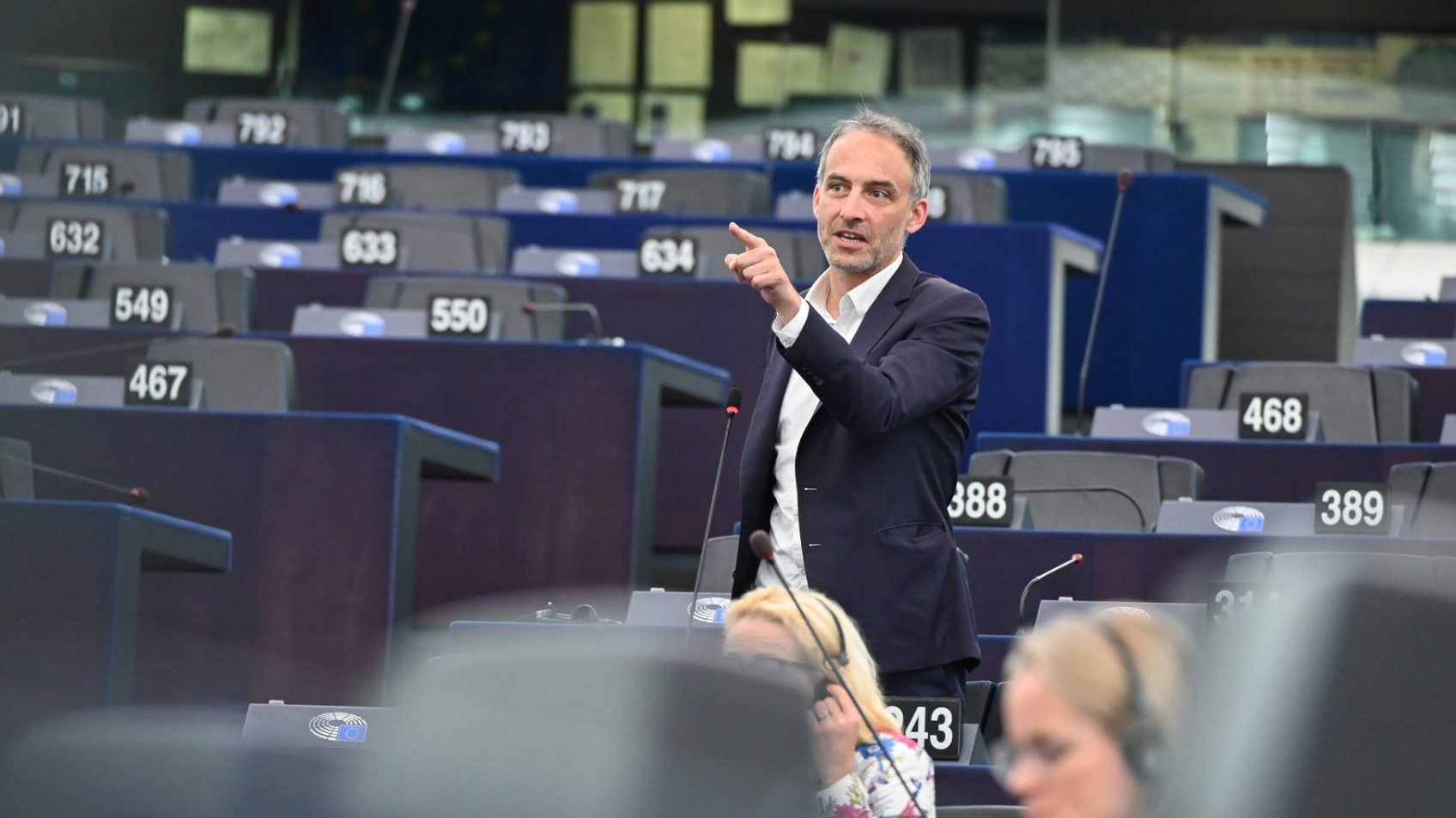
French MEP Raphaël Glucksmann of S&D during the debate on new transparency rules.
Photo: Brigitte HASE © European Parliament 2023 Source : EP
The ethical screws tightened on MEPs this week as the European Parliament overwhelmingly backed new rules on lobbying, the acceptance of gifts, and interactions with third-party countries in the first major legislative clean-up following the Qatargate revelations earlier this year.
Based on a 14-point programme outlined by the Parliament’s President Roberta Metsola, from November, parliamentarians will be required to declare their assets at the beginning and end of the parliamentary term, curtail interactions with recently retired MEPs, and better declare liaisons with NGOs alongside their PAs, as well as gifts received. The new system will be managed by a beefed-up Advisory Committee consisting of eight MEPs.
The push for the ethical revamp stems from Qatargate, a still-evolving corruption scandal involving non-EU nations such as Qatar, Morocco, and Mauritania, who are accused of bribing MEPs for influence through a subterranean nexus of NGOs and third parties.
The scandal first broke in December last year with the spectacular arrest of Greek MEP and Parliament Vice President Eva Kaili after €150,000 in cash was recovered by police at her Brussels apartment. The ringleader of the plot and the parliament’s former liaison with the Maghreb, former Italian MEP Antonio Panzeri, admitted to acting as a go-between for Qatar and Morocco laundering bribe money for MEPs in exchange for positive human rights reporting.
A noticeable feature of the scandal has been the prevalence of left-wing S&D MEPs with many conservative politicians taking umbrage at the fact that the parliamentary faction was able to set the tone on the reforms passed through the Parliament Wednesday, September 13th.
Pointing to the influence of German Social Democrat MEP Gabriele Bischoff, who edited the text parliamentarians voted on, populist MEP Gunnar Beck likened the fact that the S&D dictated the terms of Qatargate reforms as “turning the goat into a gardener” as he lamented that a parliamentary group non-attached to the scandal wasn’t given the duty of writing the report.
While the measures easily cleared Parliament, the EPP had earlier taken issue with asset declarations at the committee stage. An amendment for MEPs holding positions in registered lobby groups was also voted down.
The Parliament has also upped its internal security in light of the scandal with Qatari and Moroccan officials by having their access tightened, as conservatives complained that Eurocrats were using the debacle as an excuse to clamp down on the ability of MEPs to conduct independent foreign policy missions under the guise of fighting corruption.
Yes! We passed changes to our transparency rules in committee! #qatargate
— Damian Boeselager (@d_boeselager) September 7, 2023
What’s in
– register of meetings for *ALL* MEPs
– anyone earning >5k side income pa needs to report every single euro
– asset declarations at start & end of mandate
– much more!
Next: vote in plenary! pic.twitter.com/Lf62ZiKCF4
